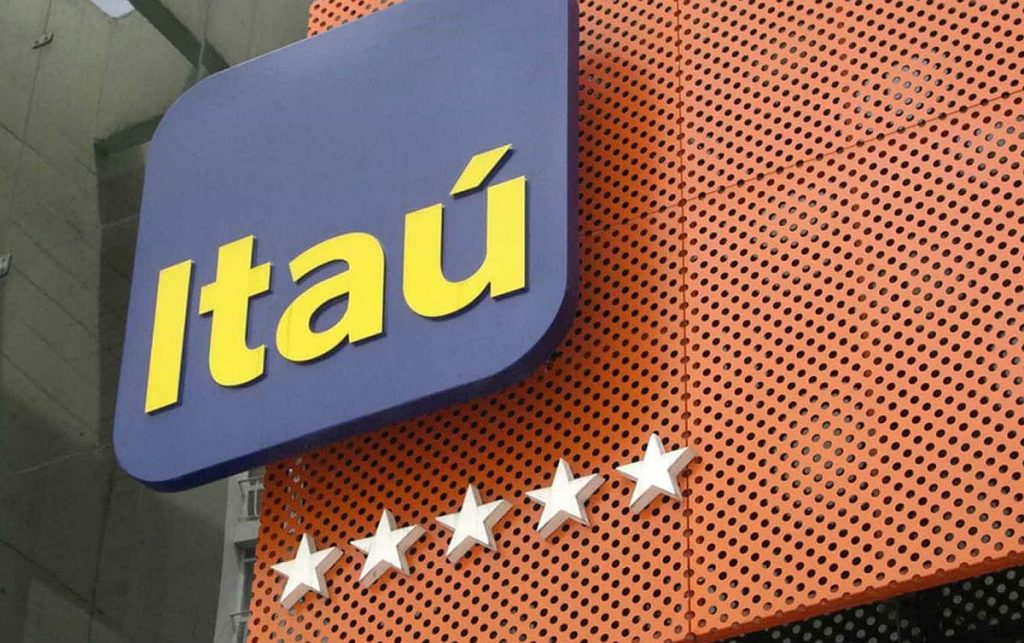RIO DE JANEIRO, BRAZIL – Itaú‘s recurring net profit was down 40.2 percent in Q2 2020, compared to the same period last year, to R$4.205 billion (US$841 million). Against the previous quarter (Q1), profit increased by 7.5 percent. The result was in line with analysts’ projections compiled by Bloomberg, of R$4.255 billion.
The ROE (return on equity – an indicator that measures how banks invest their shareholders’ resources) fell ten percentage points from one year to the next, ending Q2 2020 at 13.5 percent. By late March, however, it stood at 12.8 percent.
The financial margin dropped 3.66 percent in Q2 over the same period in 2019, in line with profit performance. The managerial financial margin, which considers operations with clients and with the market (treasury), stood at R$17.776 billion, compared to R$18.451 billion between April and June last year. The result was in line with the figure seen in the first three months this year.

The bank’s services revenue showed a drop in the annual comparison, from R$9.063 billion to R$8.396 billion – a drop of 7.4 percent. “Service revenue showed a reduction due to the impact of lower economic activity on card revenues (issuer and acquirer), lower activity in the capital market on revenues from economic advisory services, brokerage, and funds,” explained the bank.
Loans and default
The bank considerably increased its provisions for losses related to default, which rose 71.6 percent in the annual comparison, to R$7.561 billion. The figure, however, is lower than the R$10.398 billion reported in the preceding quarter.
“Amid the adverse economic scenario due to the Covid-19 pandemic, we noted some signs of improvement during the second quarter. Therefore, our model, which is updated according to macroeconomic conditions, produced lower provisions in this quarter than in the preceding one, when the crisis began,” said the bank quarterly report.
The cost of Itaú’s credit dropped by 23 percent between April and June this year, in the quarterly comparison, reaching R$7.8 billion. However, when compared to Q2 2019, there was a significant increase of 92.1 percent in this indicator.
Despite having increased provisions for default, the largest private bank in the country saw a default drop of over 90 days from 2.9 percent in Q2 2019 to 2.7 percent in the same period this year. In March, the indicator stood at 3.0 percent.
The bank’s total credit portfolio increased 2.9 percent in the quarterly comparison and 20.3 percent in the annual comparison, totaling R$811.3 billion.
The individual portfolio contracted by 3.8 percent compared to the preceding quarter, mainly due to the lower credit card portfolio. The growth rates in 12 months stood at 2.9 percent, with special emphasis on growth in personal credit, vehicles, and real estate credit.
The corporate portfolio grew 3.4 percent compared to the preceding quarter, mainly in products such as working capital and real estate credit. In 12 months, there was a 29.2 percent growth, with important transactions in working capital, vehicles, and import/export financing, the bank noted.
Revenues
Along with the result, the largest private bank in Brazil also reported that its board of directors yesterday approved the payment of dividends to shareholders on August 26th, based on the final shareholding position recorded on August 17th.
The JCP (interest on equity, a form of dividend) will be paid in the amount of R$0.0529 per share, with 15 percent income tax retention at source, resulting in net interest of R$0.044965 per share.
Source: InfoMoney

